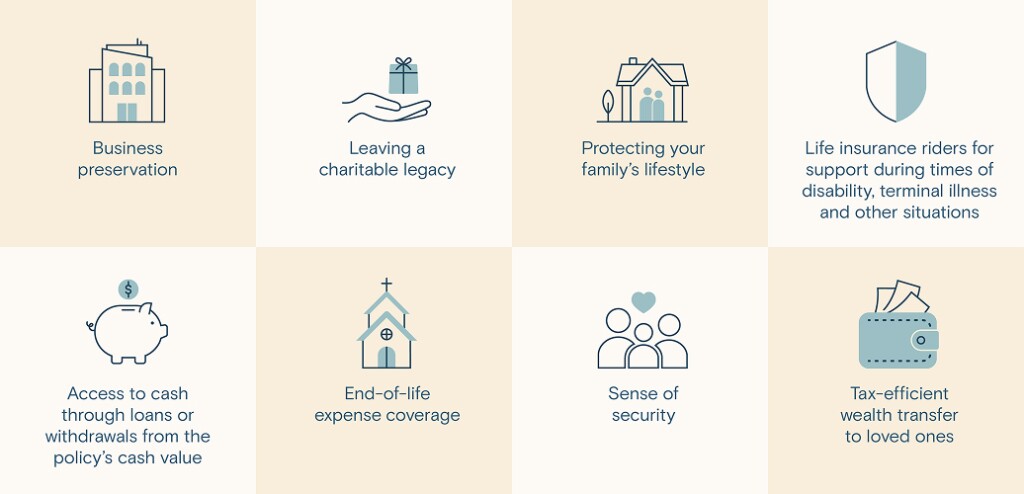If you've lost a family member, you may have unanswered questions about their finances, especially if they died suddenly or kept their finances close to the vest. For instance, you may not be sure if they had a
In cases like these, learning how to find out if someone had life insurance could help. There are ways to track down this information and claim the benefits your loved one intended you to receive.
Why life insurance may go unclaimed
Some people don't want to share details of their financial life with others. Some families don't talk about money, and sometimes, there simply may not have been time to ask the right questions. This could lead to key missing details that result in a loved one's life insurance going unclaimed. The following situations could send a contract into limbo:
- The beneficiary contact information is incomplete or outdated.
- The beneficiaries aren't identified by name. They might just be called "my husband" or "my daughter," and the company doesn't know how to locate them.
- The life insurance company doesn't have the latest address.
- The life insurance company doesn't know the contract holder has died.
- Beneficiaries aren't aware the contract exists and don't ask for the benefit.
- The life insurance company was bought, closed or changed.
What happens to unclaimed life insurance
If your family member's life insurance contract is a mystery, the good news is benefits usually don't expire—unless the contract very specifically states it does. And even then, you're likely able to collect once you find the contract. So generally, there's no time period in which you must make your claim as a beneficiary. However, Uniform Unclaimed Property Laws require life insurance companies to turn over unclaimed proceeds to the state, if a contract goes unclaimed for many years.
How to locate a life insurance contract
If you suspect there might be a missing life insurance contract, these steps could help you locate it:
- Your loved one's papers and digital records may offer clues. If you have access, consider searching documents kept in a safe or safe deposit box to try to locate statements, policies or correspondence with a life insurance company. You might find old bills or paid premium receipts. Tax returns also could show interest payments from the insurance company.
- If you know your family member worked with a specific life insurance company, call the agent or local branch for help.
- If your loved one had a financial advisor, check with them to see if they have a record of a life insurance contract. A former employer also might have information.
- File a request with the National Association of Insurance Commissioners' (NAIC)
Life Insurance Policy Locator Service. They distribute your information to participating life insurance companies, which then search their records for a contract. Additionally, some states have their own lost policy finder websites, so Google your state and "locate life insurance policy." - Search through the
National Association of Unclaimed Property Administrators with the state where your family member lived and/or the state where you live. If you find property through the NAUPA site, there will be a process each state typically has with separate requirements to follow to process a claim.
How to claim the life insurance benefit
Once you've gathered information about the life insurance contract, you'll need to provide some documentation, especially if you believe you're the beneficiary and want to claim the payout. Such documentation could include:
- A certified death certificate for your family member.
- A statement that you believe you're a beneficiary of the contract.
- Documentation of your relationship to the relative who died. This could be your birth certificate if your parent passed away, a marriage certificate if it was your spouse or a will if you're the executor of your loved one's estate.
After you have all your paperwork in order, the next thing you need to do is
Once everything's been processed, the life insurance company likely will pay you within two months. But as with all processes, you could encounter delays if there are any questions about the paperwork. If the contract is less than two years old, the insurer may investigate to be sure the application disclosed all known health concerns. Follow up with the company if you don't receive payment. You may need to check that all forms were filled out correctly and that they received everything they need.
How much coverage do I need?
Having the right amount of life insurance in place can go a long way to offering your family some reassurance. How much life insurance should you have?
Checking on your own life insurance contract
If you suspect your loved one left life insurance behind, or if you just aren't sure, taking the time to carefully research the issue can help you get the funds set aside for you—and help you find closure.
Once you resolve your loved one's life insurance, consider the state of your own documentation. If you have a life insurance contract, there are steps you can take now to ensure your beneficiaries will be able to access the benefit without any issues. Make sure you keep your life insurance contact information up to date and that
A







